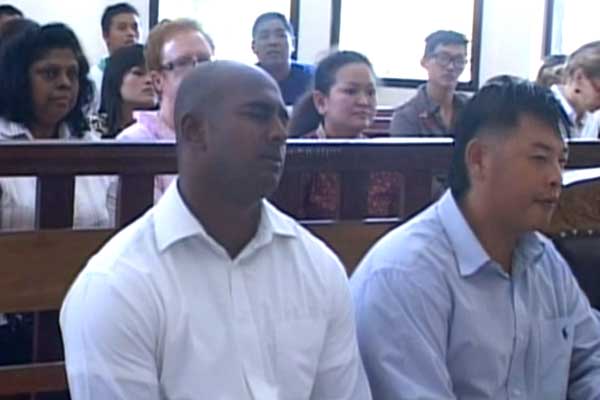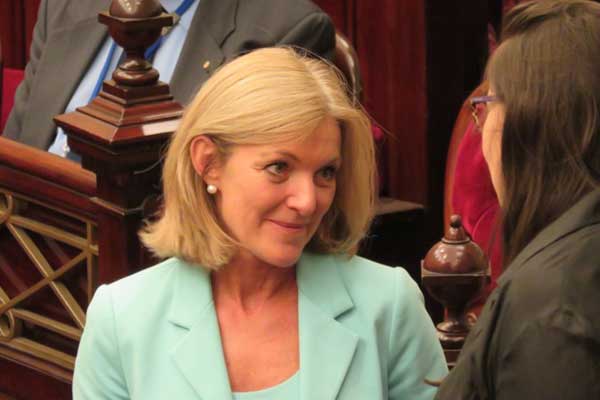Let’s face it. Morphine and heroin are pretty much the same thing. They both come from the little red and black opium poppy and are processed in much the same way. Heroin crosses the blood/brain barrier a bit quicker than morphine and it can be twice as strong, but from a medical perspective, they are completely interchangeable.
Every day, morphine delivers thousands of people from the agony of car accidents, war wounds and inoperable cancers. The poppies that produce morphine are grown in relatively unsecured paddocks in various parts of Australia and morphine is transported across state and national borders with a minimum of fuss. In short, the production and distribution of morphine in Australia causes no problems for the community at large and delivers an enormous benefit through its ability to alleviate pain.
On the other hand, the same drug under the name of ‘heroin’ is a demon. It tears families apart, kills people from overdoses and leads users into a life of misery and crime.
So what causes this schizophrenic effect in the community from the same drug under a different name? Clearly it has nothing to do with the name or the nature of the drug itself but has everything to do with the illegality of one and the legality of the other.
We even ‘treat’ heroin addicts with yet another type of legal morphine in the form of a synthetic opioid called ‘methadone’. So we send people to jail for being heroin addicts, but then we addict them to another form of heroin under a state-sponsored program and somehow that’s OK. Does anyone else see the inherent madness in this?

If heroin were regulated in the same way that morphine and methadone are, it would have the same number of problems as there are with morphine and methadone. How can it be otherwise? It’s the same drug. When was the last time you heard of someone breaking into a house to get money for their morphine or methadone addiction? Never.
Morphine actually kills way more people in the general community than heroin does anyway. About 75,000 people die each year in Australia aged over 80 years. If you’ve ever had experience with the death of an elderly parent or loved one, you will know that for many, a ‘morphine-assisted’ exit by humane and caring doctors is not uncommon.
By comparison, Australia records only 500-600 accidental deaths from heroin, morphine and oxycodone combined. Many of these would be heroin users who are attempting to self-medicate to ease their own particular type of pain – be it emotional, physical or spiritual.
In rejecting mercy pleas from Myuran Sukumaran and Andrew Chan, the Indonesian President displays the same ignorance around the cause and effects of illicit drugs as Australian Prime Ministers do. Joko Widodo is no different to John Howard, Kevin Rudd, Julia Gillard or Tony Abbott in his attitudes to heroin. He just presides over a more extreme punishment regime.
All of them have claimed to be waging a ‘war’ on drugs, and all of them attempt to ‘win’ the war in the same way they attempt to win military wars – by sending in troops to kill the enemy. The metaphor is completely misplaced and the phoney war kills way more people than the drugs do.
Mr Widodo cited 50 deaths a week from narcotics (ostensibly heroin) as the reason why he could not grant clemency to convicted narcotics dealers. Does he really think that murdering heroin smugglers will decrease the number of deaths from heroin? There is no evidence anywhere in the world to support this notion.
Our Prime Minister’s appeal to the Indonesian President on humanitarian grounds is severely weakened because Widodo knows that Abbott supports his over-arching drugs strategy. Instead, Mr Abbott needs to show him that prohibition undermines Indonesia’s GDP through massive spending on police, customs, court costs, jails, HIV and Hep C treatments, and that prohibition actually increases illicit drug use rather than decreasing it.
To make Abbott more of a lame duck in his bid for clemency, Australia endorsed the death penalty for the Bali Nine members the moment the Australian Federal Police tipped off the Indonesians in 2005.
The AFP could have easily allowed the smugglers to arrive back in Australia before arresting them, where they would not have faced the death penalty. At the time, Phillip Ruddock was Attorney General, Chris Ellison was Justice and Customs Minister and John Howard was Prime Minister. Howard had just nominated his hard line anti-drugs campaigner, Major Brian Watters from the Salvation Army, to a five-year post on the United Nations 13-member International Narcotics Control Board. Watters is on record as chiding proponents of ‘harm minimisation’ as ‘softies’.
Howard had also vetoed a plan by the ACT government for a heroin trial and condemned the decision of Victorian and New South Wales’ governments to set up safe injecting facilities. He wanted the electorate to know he was ‘tough on drugs’ and particularly tough on heroin.

AFP chief Mick Keelty only ever spoke about ‘his officers’ and ‘us’ making the decision to tip off the Indonesians about the Bali Nine. Keelty and his senior officers would have clearly known that their actions could have resulted in not two, but all of the Bali Nine being executed.
I find it hard to believe that the AFP would make a unilateral decision on such an important and politically explosive issue without any executive direction behind it. With Andrew Chan and Myurann Sukumaran facing a firing squad, Australians have a right to know who authorised this decision and the real circumstances surrounding it.
Federal MPs need to break ranks with government policy on drugs and step outside the usual thinking to save the lives of these two young Australians. In 2016, the UN is holding a special meeting to discuss ways that UN drug treaties might hold countries hostage to the use of prohibition as a default model in regulating illicit drugs. Mr Abbott should be pressuring Mr Widodo for a moratorium on executing the two Australians, until after the results of this meeting are published.
Australia and Indonesia should both take advice from past politicians who have become impartial experts in the field now that they are not seeking re election. The past Presidents of Mexico, Chile, Brazil, Columbia and Peru have all recently added their signatures to the conclusions of the Global Commission On Drugs.
These former leaders know more about whether prohibition and killing drug dealers stops people from using or selling drugs, than anyone in the world. They have been fighting the drug trade and executing drug dealers for 50 years. Now that they are not trying to get re-elected, they all say that drugs should be legalised and regulated.
Other experts like former United Nations Secretary, Koffi Annan, former US Secretary of State, George Shultz and businessman, Richard Branson have all added their voice to the growing world opinion that criminalising drugs and executing drug dealers only makes the situation worse.
It’s time for Australia to lead the region into a new era of drug regulation.
* Fiona Patten is a Victorian state MLC for the Sex Party, and a long time political activist.
Donate To New Matilda
New Matilda is a small, independent media outlet. We survive through reader contributions, and never losing a lawsuit. If you got something from this article, giving something back helps us to continue speaking truth to power. Every little bit counts.



